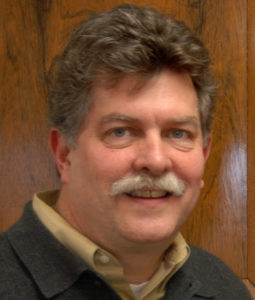Quick fixes like contemporary worship and missional outreach can’t fix what ails U.S. churches, an American Baptist official said in a recent lecture at Central Baptist Theological Seminary.
“There are no quick fixes,” Jeff Woods, associate general secretary for regional ministries with American Baptist Churches USA, said in a lecture Oct. 6 on the campus in Shawnee, Kan. “Focusing on quick fixes tends to only make things worse.”

Jeff Woods
Woods, a speaker, consultant and resource person for more than 30 years, said church growth and vitality are byproducts of factors such as clarity of focus and doing small things well.
Woods said churches have turned to quick fixes to address a number of urgent challenges cropping up in recent decades.
A sense of urgency in evangelism, evidenced by declining attendance, brought forth church growth principles, with remedies such as increased parking, calling a younger pastor and shortening the worship service. Woods said none of them correlates statistically to church growth.
Evangelistic campaigns such as a revival do serve anxious congregations with a “placebo effect,” he said. “It does make the congregation feel better about having done something but doesn’t correlate with growth.”
Appointing an evangelism committee, on the other hand, has a negative correlation with growth, because it sends a message to people not on the committee that they are off the hook when it comes to sharing their faith.
Sensing urgency because young people were not coming to church, Woods, said, many congregations sought a quick fix by changing their worship to a “contemporary” style. The problem, he said, is there are far more than two styles of music.
Woods said there is a correlation between worship that is “uplifting” and church growth, but the term means different things to different people.
Changing worship style can result in growth, he said, but it also correlates with increased conflict.
Woods said a more recent quick fix, the missional church, responds to urgency in mission: “We don’t know our neighbor, and for some reason people don’t think we care anymore.”
Involvement in missional or community activity grew sharply between 2001 and 2014, Woods said. While data shows that mission activity leads to growth in a couple of places like having an Alcoholics Anonymous group and before- or after-school child care, he said, in most other areas it does not correlate with growth.
Woods said alternatives to quick fixes include Joining God in the Neighborhood, a resource from American Baptist Churches USA which encourages congregations to discern “what God is up to” in their communities and how they might fit in.
Woods says he is currently working on what he calls “the spark of innovation,” what happens after the initial contact between God and people.
“What I have found in looking through the New Testament is how disruptive that initial contact is with God and humans,” he said.
“I’m calling the Virgin Birth the Virgin Pregnancy,” Woods said. “That’s the disruption, if you will, in that person’s life.”
“Jesus wanting to be baptized by John the Baptist, a lay person,” he said. “Imagine that disruption in your congregation.”
“The Sermon on the Mount was nothing but a disruption, a radical change in how we should live our lives,” Woods said. “And Jesus walked on water in the midst of a storm. Why did Jesus choose a storm? Couldn’t walking on water have been enough?”
“Every time that Jesus intersects with our lives, it disrupts our lives,” he said.
When that happened in the Bible, Woods said, people tried to shift focus from the disruption to some distraction.
“Isn’t this the person from Nazareth?” he illustrated. “Is it a ghost?”
“My favorite is the town after Jesus sends the demon into the swine,” he said. “It says the whole town comes to Jesus and says, ‘You need to leave.’”
“It is only in the Book of Acts where we see this spark of interaction between God and people that a community expands,” Woods said. “Increased community only comes from focusing on the disruptions of God rather than our own distractions.”
